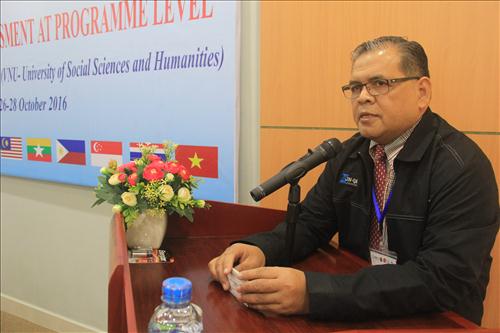
Attending the closing session on the side of the AUN assessment team were Associate Professor Dr. Yahaya MD. Sam, Senior Director of the Center for Quality and Risk Management (Universiti Teknologi Malaysia), representative of the AUN Secretariat Ing-orn Jeerararuensak and quality assessment experts; on the side of VNU, there was Dr. Tran Thi Hoai (Deputy Director of the Institute for Education Quality Assessment - VNU); on the side of the University of Social Sciences and Humanities, there was Prof. Dr. Pham Quang Minh (Rector of the University) along with members of the Board of Directors, staff, lecturers and representatives of the Faculty of Philosophy.
At the closing session, the representative of the External Assessment Team mentioned the strengths, potentials and areas that need to be improved according to the AUN-QA standards of the undergraduate training program in Oriental Studies.
Evaluating the program, the representative of the Evaluation Team said that, basically, the program is built to promote learning activities, learning methods and create lifelong learning habits for students; the program has a balance between specialized content, general knowledge, and necessary skills with reasonably distributed content; the staff and lecturers are enthusiastic, have good capacity, and are fluent in foreign languages; staff and lecturers are given conditions to study, improve skills, improve capacity and expertise as well as promote their creativity; the input quality of students is guaranteed through the national university entrance exam; policies and conditions to support students are good; the rate of students having jobs after graduation is high.
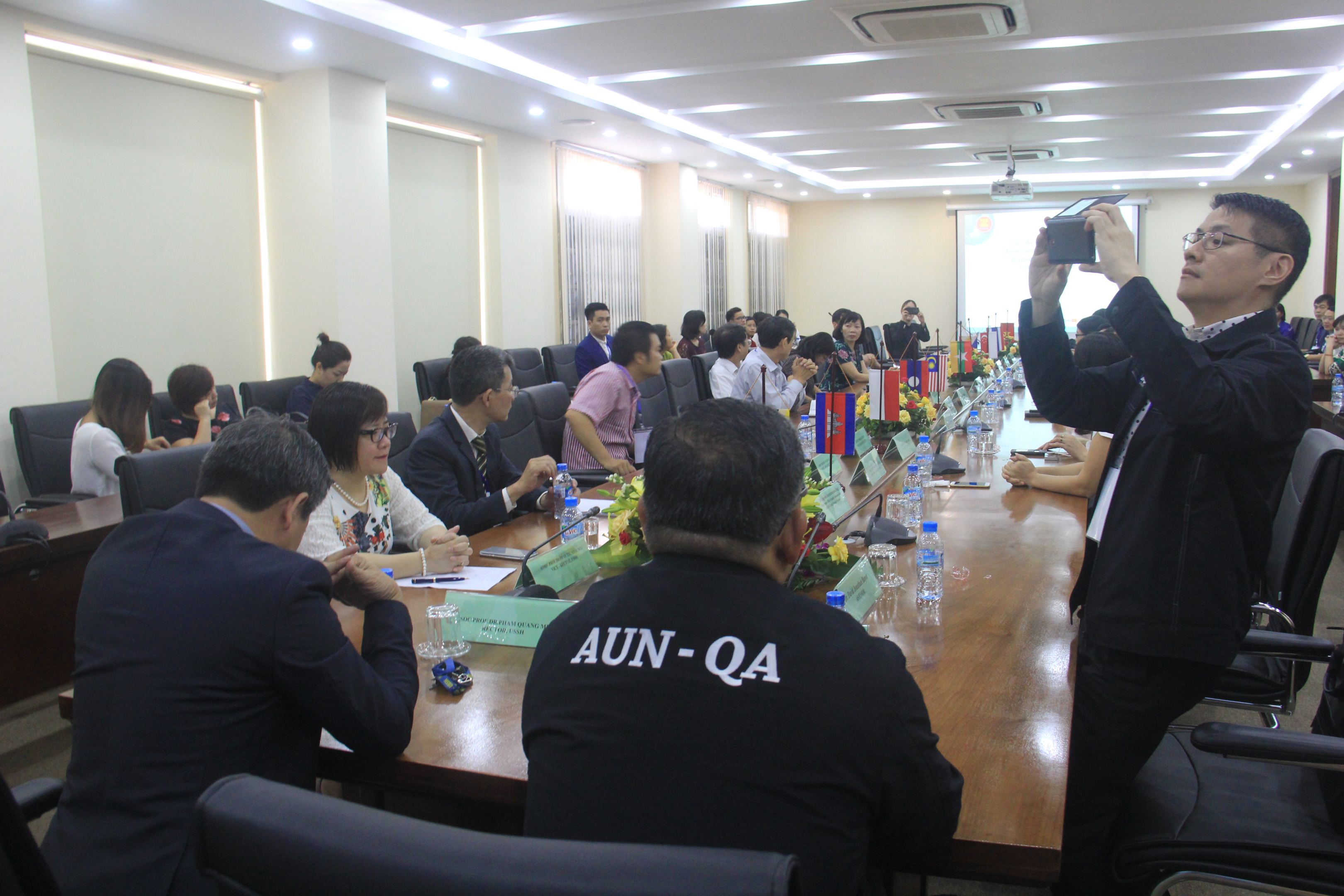
Panorama of the closing session
To further improve the quality of the training program, AUN assessment experts recommend: paying more attention to supporting and advising new students, helping them get acquainted with and overcome difficulties in the new learning environment; organizing more collective activities so that students have the opportunity to use and improve soft skills; improving English communication skills for students through exchange activities and organizing clubs; attracting funding sources to support staff and lecturers in scientific research; paying more attention to establishing cooperative relationships with international partners; investing more in equipment serving learning and research; enhancing the role of alumni, serving the development of the Faculty and School.
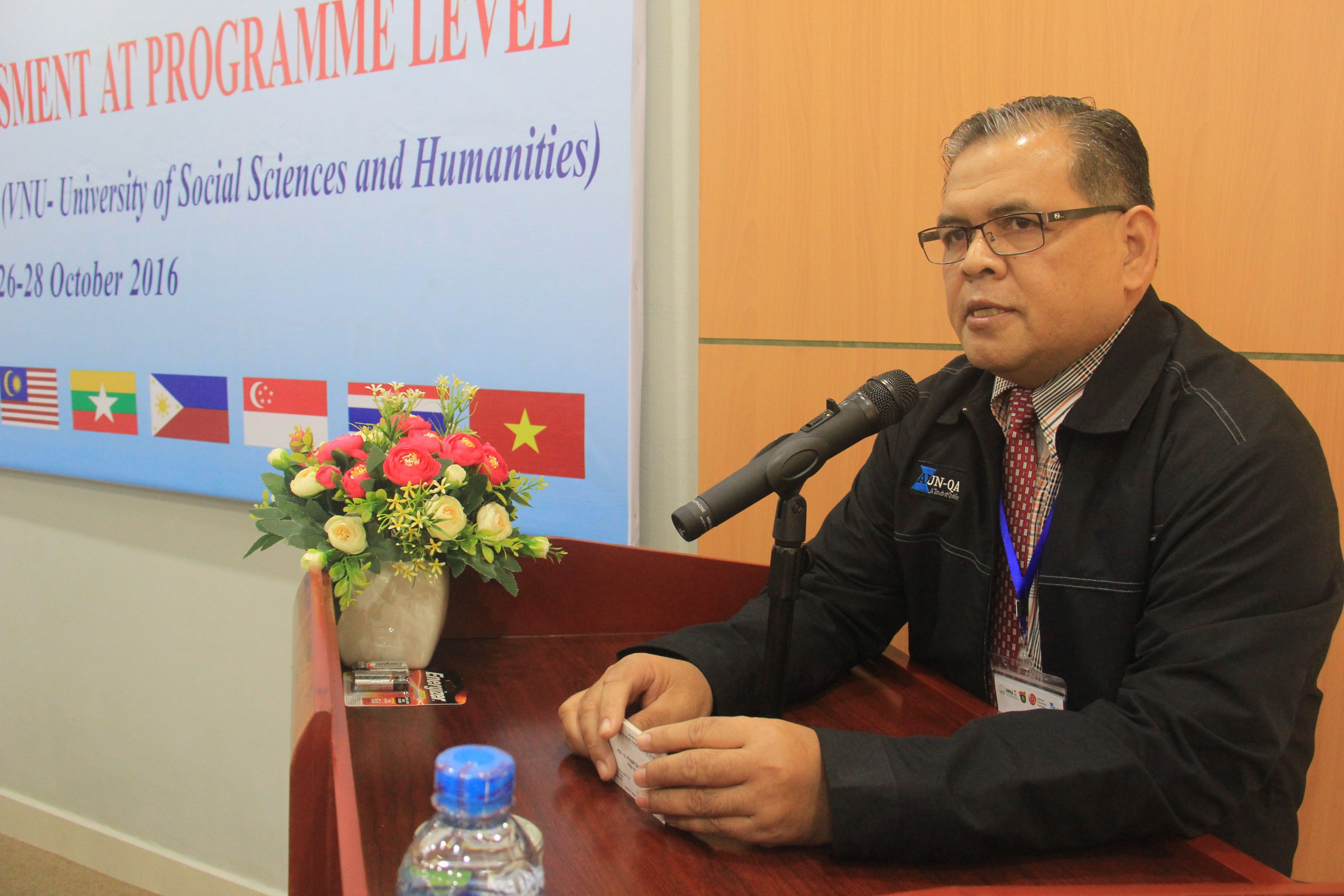
Associate Professor, Dr. Yahaya MD. Sam presented a preliminary assessment of the Bachelor of Philosophy training program at the University of Social Sciences and Humanities.
Prof. Dr. Pham Quang Minh (Rector of the University of Social Sciences and Humanities) highly appreciated the enthusiastic, serious and systematic working spirit of the external assessment experts of AUN. The Rector emphasized that the comments and assessments on the strengths and contents that need to be improved in the program will motivate and encourage the faculty staff and lecturers to continue to improve the quality of teaching and improve the quality of the program even better. The University affirmed that it will promote the strengths and improve the limitations to increasingly improve the quality of the training program, contributing to the development of the Faculty and the University in line with the integration trend.
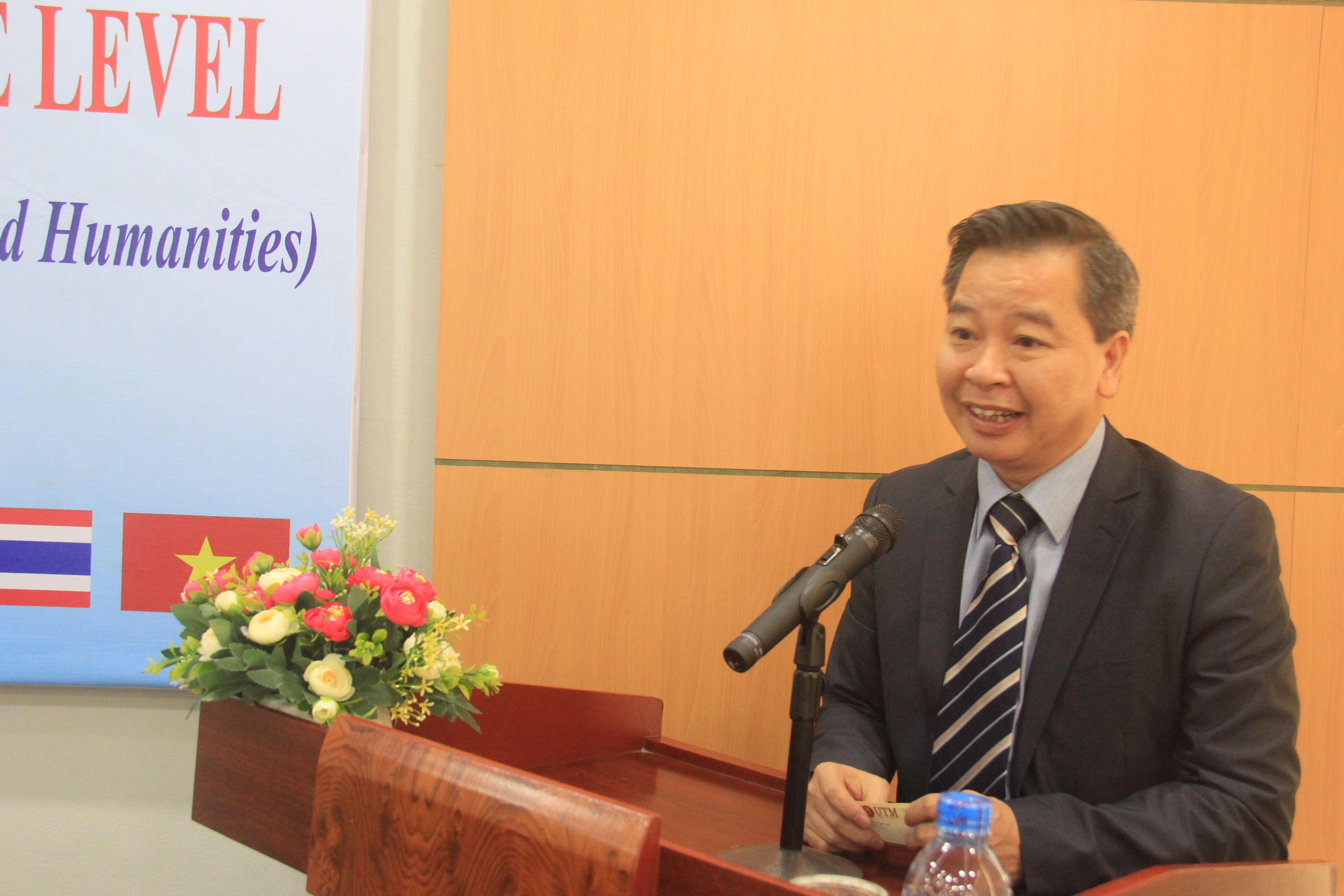
On behalf of the University of Social Sciences and Humanities, Prof. Dr. Pham Quang Minh sent his thanks to the AUN-QA external assessment team.
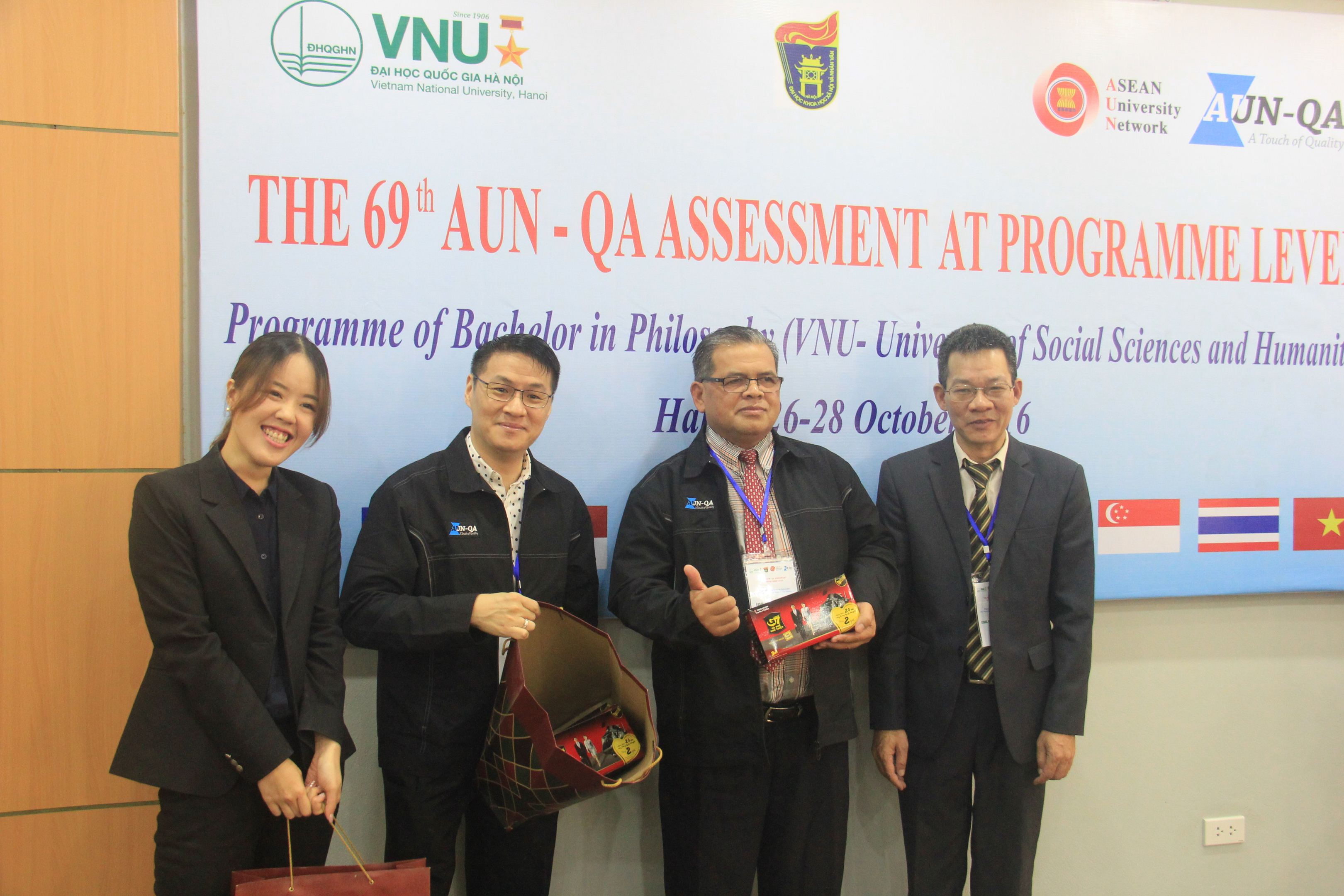
Associate Professor, Dr. Nguyen Anh Tuan (Head of the Faculty of Philosophy) took a souvenir photo with the AUN-QA external assessment team
|
The AUN-QA standard set currently has 15 standards with 68 criteria. Each criterion is evaluated according to 7 levels: 1 = Does not meet the requirements of the assessment criteria at all, must have immediate solutions; 2 = Does not meet the requirements of the assessment criteria, needs solutions; 3 = Does not meet the requirements of the assessment criteria, but only needs small solutions to meet the requirements; 4 = Meets the requirements of the assessment criteria; 5 = Meets the requirements of the assessment criteria well; 6 = Meets the requirements of the assessment criteria very well; 7 = Excellently meets the requirements of the assessment criteria. Choosing to be accredited according to AUN standards is to help schools know what level their training programs have reached on the regional assessment scale. Next, to detect what the program still has to overcome to ensure the program reaches the same quality as programs in the same field in the ASEAN region. With a long history of formation and development in the Southeast Asia (ASEAN) region, after 16 years, the ASEAN University Network on Quality Assurance (AUN-QA) has a team of external assessors, education experts and education quality assessors. AUN-QA currently has 15 senior quality assessors and 36 assessors at all levels, from 22 universities in 7 countries in the ASEAN region. The birth of AUN-QA and AUN has contributed to enhancing the position of higher education in Southeast Asian countries, moving towards integration in educational quality with advanced countries in the world. |
Author:Tran Minh
Newer news
Older news